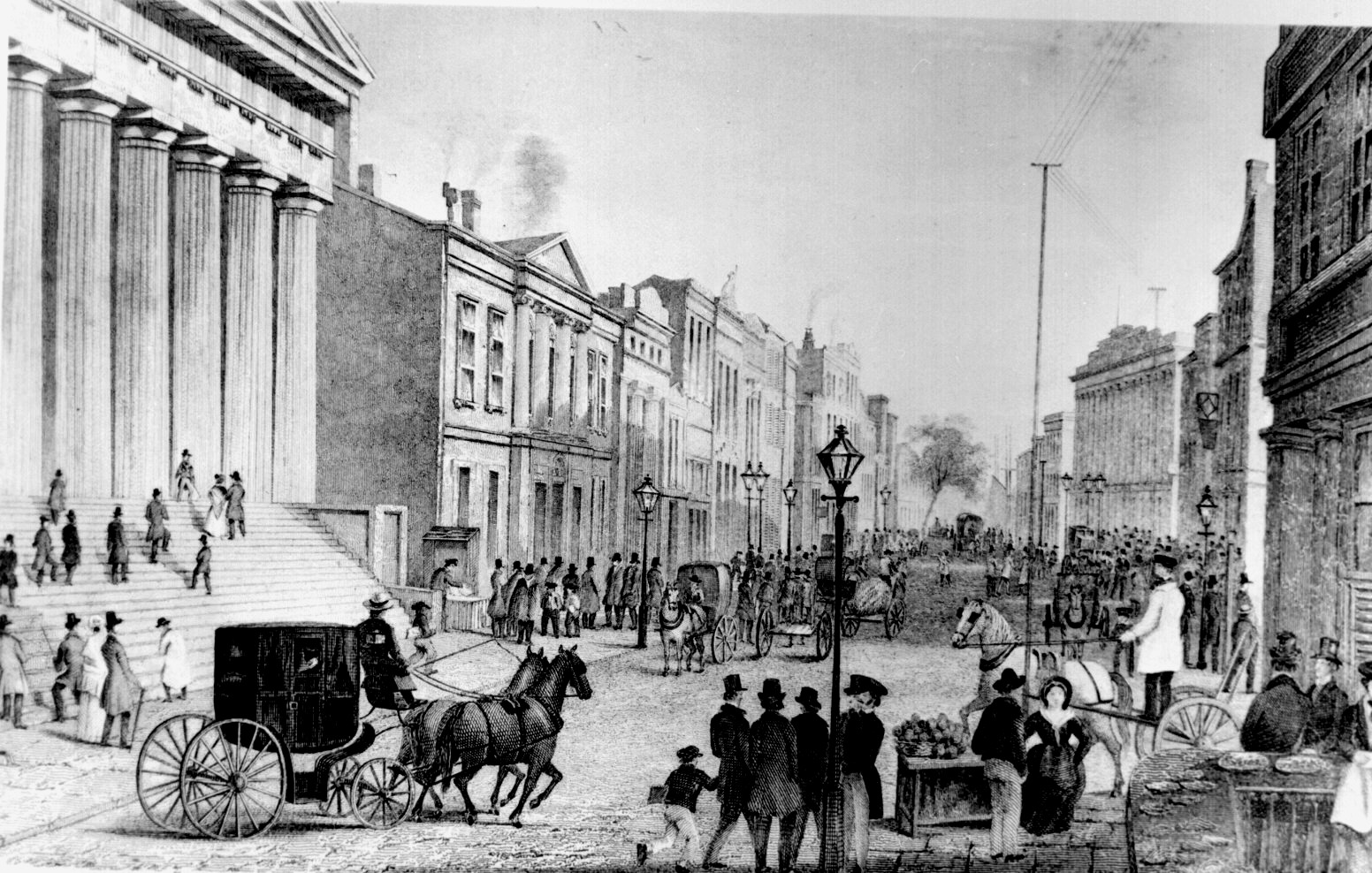Apple Podcasts / Google Podcasts / Spotify
—
The Story is brought to you exclusively by Salesforce, a company that is committed to building a path toward Equality For All.
—
The Haitian revolution was in full swing. The country was falling apart, and various factions were at war with one another.
It was the early 1800s and an anonymous group of wealthy New York business titans were running a counterfeiting operation in Haiti with the help of an enterprising young man.
They hadn’t planned on the Haitian revolution. Now with the country in chaos, their operation was at risk, and so was the man running it.
Wanted posters with the man’s face were showing up all over the island.
From a small fishing boat offshore, he surveyed the scene. He didn’t have time to write back to New York and ask for advice or permission, so he launched his own plan. Under the cover of night, he returned to the town and quietly closed all of his accounts at the local banks. He pulled out most of his counterfeiting profits just in the nick of time. Money in hand, he boarded a ship bound for New York.
When he arrived in America, the operation’s anonymous financiers took their money. But afterward, they refused to speak to the young African-American man who had rescued it for them.
He would have to start over from scratch.
His eyes turned toward Wall Street, the place where his benefactors had made so much money. In those days there were few financial regulations. There were, however, many racial ones. More often than not, these regulations were unspoken rules, like the rule that an African-American couldn’t be a Wall Street trader. The man simply ignored these rules and became a broker.
The cautious approach would be to keep his head down, avoid undue attention, and let his work speak for itself.
He had as little regard for financial rule-keeping as he did for racist codes. This disregard for rules pulled him into various lawsuits, but he rarely lost.
It was the wild west on Wall Street, and the young stockbroker used all the same tricks and maneuvers as his white peers. And rather than keeping a low profile, he proved himself to be a prodigious self-promoter and was soon famous throughout the country.
He knew society would never give him permission to become rich. So he did it without their blessing.
Over the next decade, he would teach himself how to craft business deals, use insurance laws to his advantage, and court, or sometimes even buy, the press. By 1852, he had become the first known African-American millionaire.
His legend grew so large that some believed he was a myth. But the wealthiest people on Wall Street, and the courts, knew the truth. He was real. He had many nicknames, none of which are suitable to speak here, except for one:
The Prince of Darkness
Throughout his life and career on Wall Street, the prince worked hard to make money. He endured mistreatment in both professional and personal arenas. At nearly every stage of his career, he was blackballed in the courts, on the trading floor, and with insurance companies that refused to underwrite his ventures.
His methods were commonplace for the time. He would raise money from wealthy investors and make risky investments. When the investments panned out, everyone won big. When they didn’t, the investors were left to cover their own losses. Most of the time, the plan worked well.
But not always.
He invested at the height of a housing boom and when the bubble burst, he lost everything.
He bought stock in companies such as Vanderbilt’s Accessory Transit Company, which was owned by Cornelius Vanderbilt, one of the greatest tycoons in American history. When that stock plummeted due to Vanderbilt’s own manipulations, the prince took the tycoon to court.
The prince could no longer pay his creditors and time was running out. He had to fight if he was going to survive. Vanderbilt had made a name for himself by crushing anyone who stood in his way. He took the same approach against the prince.
In the New York Supreme Court, the prince and Vanderbilt went toe-to-toe. Each argued their side of the case, using every legal trick in the book.
The newspapers in New York reported a swift win for Vanderbilt, but Vanderbilt’s own obituary lays out a very different tale.
When Vanderbilt, also known as The Commodore, died, a line in his full-page obituary was written in honor of the Prince. It read:
“There was only one man who ever fought the Commodore to the end, and that was Jeremiah Hamilton. Hamilton fought him in the courts until he got a settlement. The Commodore respected [Hamilton] although he did not fear him because he never feared anybody.”
Jeremiah Hamilton, also known as The Prince of Darkness, was America’s first African American millionaire, and was also one of the only people in the world to earn the respect of Cornelius Vanderbilt.
Despite many setbacks, Jeremiah persisted. He methodically built his wealth back up after the housing market collapsed. He married a woman named Eliza and had ten children.
When Jeremiah died, newspapers reported that he had amassed $2 million in personal wealth—more than $250 million in today’s dollars.
Jeremiah did this by constantly forging ahead. He never waited for permission from others. He built a name and a fortune all on his own, and never let the rules or expectations of others stand in the way… In the end, he earned the respect of his peers, and let his accomplishments, not to mention his fortune, speak for him.
Are you forging your own path? Or are you still waiting for permission?
The prince was a legend, and although his story has been mostly forgotten or scrubbed from history, he still looms large in the minds of many who will let nothing stand between them and their will to power.
That’s his story, what’s yours going to be?



